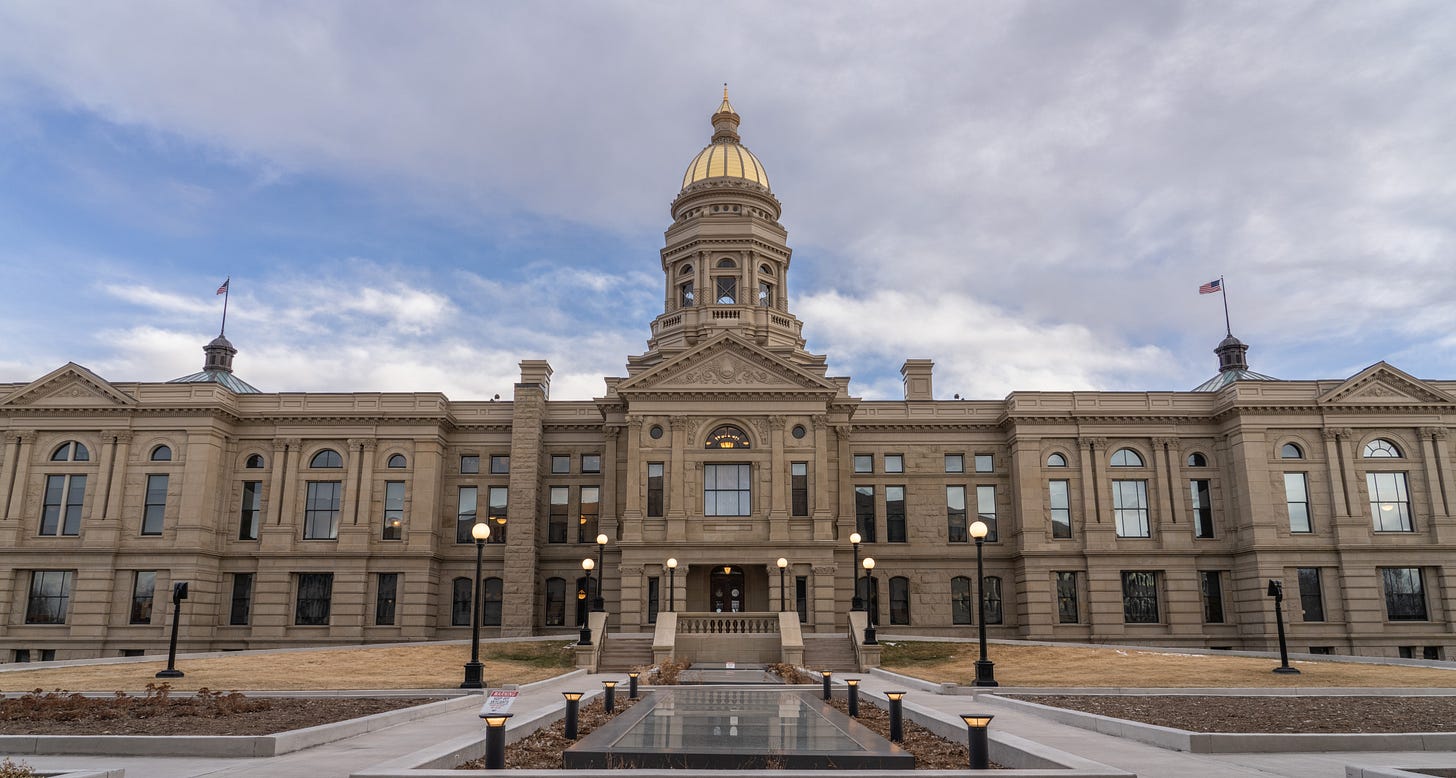Ban on gender-affirming care for trans youth clears the senate
The bill would force doctors to choose between following the law or providing the highest standard of care according to their profession. Only five senators opposed it.
The Wyoming Senate has advanced a bill that would outlaw the provision of gender-affirming care to transgender youth, stripping doctors of their medical licenses if they offered such care.
The bill passed out of the chamber Tuesday with a 26-5 vote and will now head to the House of Representatives.
The legislation is sponsored by Sen. Anthony Bouchard (SD-6), who has railed against the societal acceptance of transgender youth both within and outside of the statehouse. He brought a similar bill last year, which advanced out of the Senate but missed the House’s deadline to be considered.
This session’s bill, Senate File 99, would outlaw hormone blockers and hormone therapy for everyone under the age of 18 — banning a set of treatments approved and recommended by every major medical and psychological association in the United States.
The bill would also outlaw gender-affirming surgery for trans youth — a medical practice that is not recommended and “has never happened” and “will probably never happen in the state of Wyoming,” according to a pediatrician who testified to lawmakers last week.
Addressing his fellow senators during the bill’s third and final reading in the chamber, Bouchard said teenagers seeking gender-affirming care are “confused” and then falsely claimed that children as young as five are being rushed into surgery.
“They’re probably crying out for help because they have some kind of mental health issue that they need help with,” he said. “And instead, we’re sending them to the butchers.”
It is exceptionally rare for anyone under the age of 18 to receive gender-affirming surgery, much less a five-year-old. It is unlikely a five-year-old would receive any gender-affirming care beyond social affirmation — the adults in their life letting them dress as they please or go by the name and pronouns they prefer.
As a child gets older — and in consultation with their parents and medical and mental health professionals — the child might start taking hormone blockers, allowing them more time to explore and figure out their relationship to gender. Beyond that, as a teenager, they might begin hormone therapy, taking testosterone or estrogen as they age into an adult body — again with the consultation of doctors, therapists and parents.
SF99 would ban hormone blockers and therapy no matter what the minor wants, no matter what their parents consent to, and no matter what their healthcare providers recommend. Sen. Chris Rothfuss (SD-9) said such a blanket ban flies in the face of the legislature’s “mantra” that parental choice is paramount.
“I don’t know how we got to the point where a bill like this is even being considered by this legislature because it is so anathema to the values of individual freedom, individual rights, parent choice and healthcare freedom,” he said. “It violates all of those clearly and directly.”

But Rothfuss was one of just five senators to oppose the bill, casting a nay vote alongside Senators Jim Anderson (SD-28), Cale Case (SD-25), Mike Gierau (SD-17) and Bill Landen (SD-27).
Most senators supported the ban on transgender healthcare.
Sen. Charles Scott (SD-30) called gender transition “child abuse” while Sen. Bo Biteman (SD-21) suggested, in the far future, society would look back on trans-affirming healthcare the same way it does blood-letting or leaching “and laugh and kind of cringe at what they thought was healthcare.”
These are popular talking points for anti-trans politicians but they are contradicted by all the best available evidence. Research shows that transition regret is exceptionally rare and that gender transition as a treatment for gender dysphoria significantly improves the patient’s well-being and relationships while decreasing their anxiety, depression, suicidal ideation and substance use.
Gender-affirming care — and specifically providing hormone blockers or hormone therapy to those who seek it — can be life-saving medicine.
Youth who would like to receive hormone therapy and do are less depressed, less likely to think about suicide and less likely to attempt it than those who would like to receive hormones and don’t. Data on the mental health of queer Wyoming youth is limited, but a 2022 study found that 42 percent of such youth had contemplated suicide in the past year, and 17 percent had made an attempt.
Acceptance of trans and nonbinary youth appears to decrease these risks. Youth who have access to trans-affirming spaces or the ability to change gender markers on legal documents report lower rates of attempted suicide. And respecting a child’s pronouns is even more powerful.
“Transgender and nonbinary youth who reported having pronouns respected by all of the people they lived with attempted suicide at half the rate of those who did not have their pronouns respected by anyone with whom they lived,” notes the Trevor Project, which surveyed 35,000 LGBTQ youth across the country.




